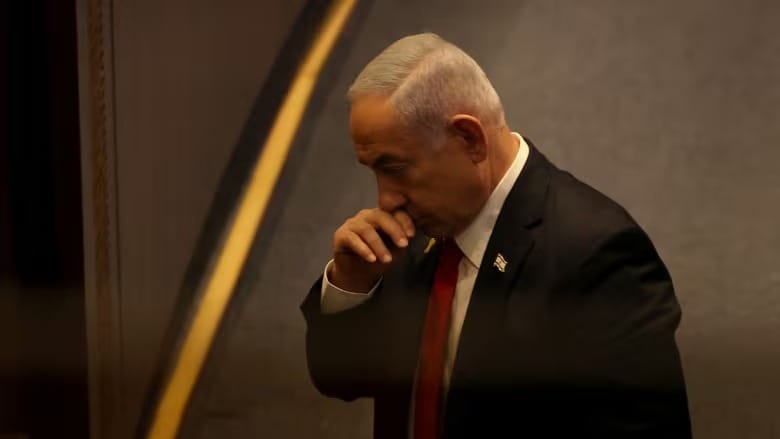Officials Try to Salvage Negotiations for a Cease-Fire in Gaza
Before leaving Qatar, the final stop on his regional tour, Blinken appeared to engage in damage control, stating, "The agreement is very clear on the schedule and the locations of I.D.F. withdrawals from Gaza." He added, "Israel has agreed to that."

Last-minute efforts to revive cease-fire negotiations in Gaza continued on Thursday, following President Biden's phone call with Israeli Prime Minister Benjamin Netanyahu, where Biden stressed the "urgency" of finalizing the deal amid diminishing hopes for a breakthrough.
During their conversation on Wednesday, Biden and Netanyahu discussed upcoming talks in Cairo aimed at "removing any remaining obstacles" to the proposed cease-fire and hostage release agreement, according to a White House statement. However, no timeline for these talks was provided, despite earlier indications that senior negotiators aimed to reconvene in Cairo by the end of the week. Netanyahu's office confirmed the call but did not elaborate on the details. An Israeli official, speaking anonymously, mentioned that Vice President Kamala Harris also participated in the call.
The Biden administration has been at the forefront of the latest push for a cease-fire between Israel and Hamas, with Egypt and Qatar serving as mediators. The U.S. has introduced a "bridging proposal" to help narrow the differences between the parties.
Despite these efforts, Secretary of State Antony J. Blinken's recent visit to the region ended without resolving key issues, and tensions flared as Netanyahu and Hamas officials blamed each other for the lack of progress.
A major sticking point is Netanyahu's insistence on maintaining an Israeli military presence along the Philadelphi Corridor, a narrow strip along Gaza's southern border with Egypt. Netanyahu argues that this area is a crucial route for smuggling weapons into Gaza, and that withdrawing would enable Hamas to rearm quickly. Both Egypt and Hamas strongly oppose continued Israeli control of the area, calling for a full Israeli withdrawal from Gaza, while some Israeli security officials have suggested alternative solutions.

Israeli negotiators were reportedly surprised and frustrated by Blinken's comments earlier this week, which implied that Netanyahu had accepted the U.S. bridging proposal and that the ball was now in Hamas's court. According to sources familiar with the talks, these remarks suggested an alignment between the U.S. and Israeli positions on an issue that Hamas was unlikely to agree to, which could have jeopardized the chances of reaching an agreement. The sources argued that Blinken could have been more cautious and called for flexibility from both sides instead.
The specifics of the bridging proposal remain undisclosed. An Israeli official with knowledge of the discussions, who spoke on condition of anonymity, noted that few people are truly aware of what is being discussed behind closed doors, and that negotiations are ongoing at various levels.
Before leaving Qatar, the final stop on his regional tour, Blinken appeared to engage in damage control, stating, "The agreement is very clear on the schedule and the locations of I.D.F. withdrawals from Gaza." He added, "Israel has agreed to that."
In a subsequent call on Wednesday with Qatar's Emir Sheikh Tamim bin Hamad Al-Thani, Blinken emphasized that the bridging proposal addressed the remaining gaps "in a manner that allows for swift implementation of the deal," according to a State Department readout. The statement also noted that both Blinken and the emir "welcomed the next round of talks in Cairo," without providing a specific date. A planned meeting between Blinken and the emir earlier in the week in Qatar was canceled due to the emir feeling unwell.
The Biden administration, along with Egypt and Qatar, has also advocated for a cease-fire in the hope of easing tensions between Israel and Iran, which has vowed to retaliate for the recent killings of senior Hamas and Hezbollah leaders, two of its proxy groups in the region. The Qatari prime minister, Mohammed bin Abdulrahman Al-Thani, is scheduled to visit Iran in the coming days for discussions with top Iranian officials, according to Iran's semi-official Tasnim news agency.





